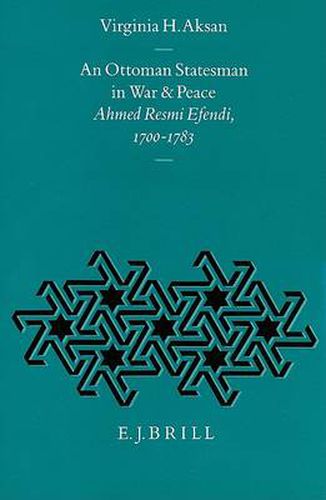Readings Newsletter
Become a Readings Member to make your shopping experience even easier.
Sign in or sign up for free!
You’re not far away from qualifying for FREE standard shipping within Australia
You’ve qualified for FREE standard shipping within Australia
The cart is loading…






This study of the life and milieu of Ahmed Resmi Effendi, utilizing a wide array of hitherto unused chronicle and documentary material, offers new insights into many aspects of Ottoman 18th-century society. Subjects touched upon include career development and patronage in the central bureaucracy, increasing knowledge and interest in European diplomacy, and the impact of war on traditional attitudes. Of particular interest is the section on the 1768-1774 Russo-Turkish War, a traumatic awakening for the Ottomans, who yielded significant territory, but were also faced with the necessity of reconstructing a polity and ideology which no longer produced results on the battlefield. Ahmed Resmi Effendi was the first of a new generation of statesmen who saw real virtue in the rationalization of war and the need for peace within prescribed borders.
$9.00 standard shipping within Australia
FREE standard shipping within Australia for orders over $100.00
Express & International shipping calculated at checkout
Stock availability can be subject to change without notice. We recommend calling the shop or contacting our online team to check availability of low stock items. Please see our Shopping Online page for more details.
This study of the life and milieu of Ahmed Resmi Effendi, utilizing a wide array of hitherto unused chronicle and documentary material, offers new insights into many aspects of Ottoman 18th-century society. Subjects touched upon include career development and patronage in the central bureaucracy, increasing knowledge and interest in European diplomacy, and the impact of war on traditional attitudes. Of particular interest is the section on the 1768-1774 Russo-Turkish War, a traumatic awakening for the Ottomans, who yielded significant territory, but were also faced with the necessity of reconstructing a polity and ideology which no longer produced results on the battlefield. Ahmed Resmi Effendi was the first of a new generation of statesmen who saw real virtue in the rationalization of war and the need for peace within prescribed borders.